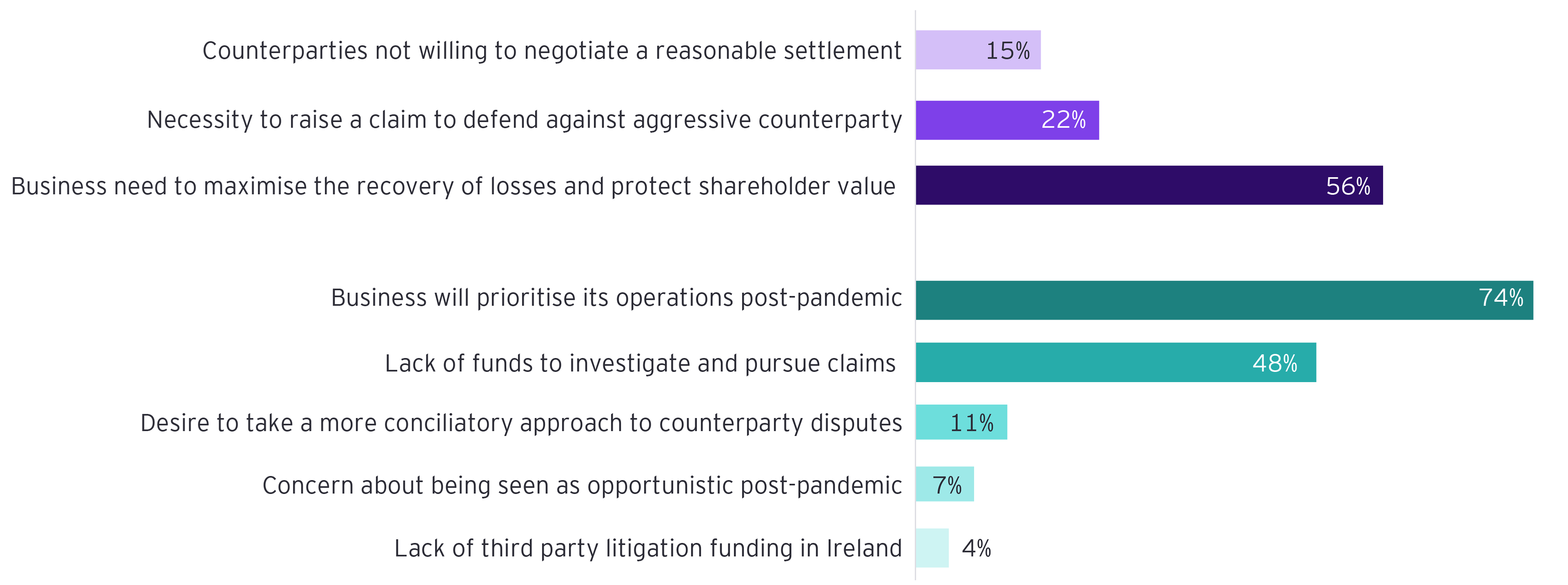During the pandemic
A focus on business fundamentals was seen during the pandemic. 30% say that their clients deferred or stopped investigating a potential legal claim against a counterparty during the pandemic, which they are likely to resume post-pandemic. The main reasons cited for this were the prioritisation of navigating the business impact of the pandemic (63%) and a lack of funds to investigate and pursue claims (50%).
However, other altruistic factors were also cited. Of those that deferred or did not pursue a legal claim, 38% said that the decision was based on a desire to take a more conciliatory approach to the counterparty, and 25% said that it was based on a concern about being seen as opportunistic during the pandemic.
Alternative Dispute Resolution
While some businesses renegotiated contracts or granted relief to counterparties, 89% of respondents said that their clients opted for some form of alternative dispute resolution (ADR) to resolve disputes since the start of the pandemic.
The most common reason cited for favouring ADR was COVID-19, i.e. going through the courts was expected to take too long due to court closures (63%), while 59% stated that ADR tends to be favoured generally. Mediation was the significantly most-favoured remedy, with 96% of respondents having clients that favoured this option when using ADR.
One respondent stated:
“[The] market is waking up to ADR. Arbitration is now more readily accepted. Probably more of a flow from the incorporation of more agreements to arbitrate in commercial contracts over the last five to seven years. Mediation is becoming more prevalent, and obligations to advise of mediation, are having an impact.”














